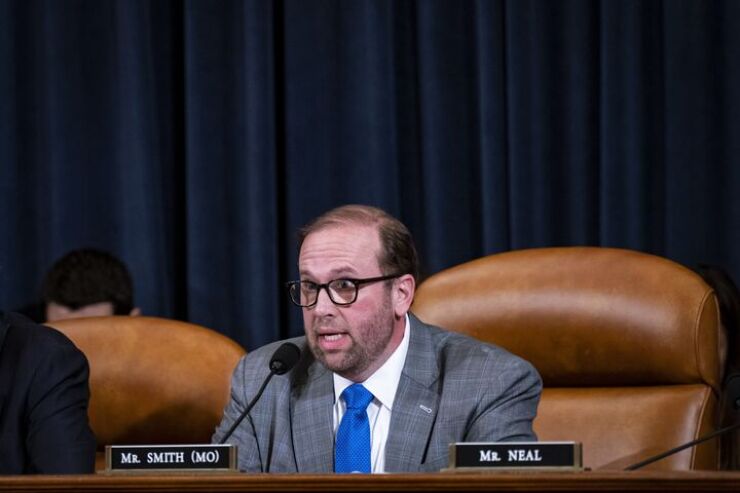Tax-exempt hospitals face scrutiny from House Republicans
3 min read

Bloomberg
Skeptical Republican lawmakers on Tuesday questioned whether tax-exempt healthcare providers provide sufficient community benefits to justify their tax breaks.
“The generous benefits bestowed on tax-exempt hospitals comes with obligation to provide charitable benefits to their communities,” said Ways and Means Committee Chair Rep. Jason Smith, R-Mo., during an oversight subcommittee hearing titled “Virtue Signaling vs. Vital Services: Where Tax-Exempt Hospitals are Spending Your Tax Dollars.”
Smith cited data that he said show from 2020 to 2022, “over half of such hospitals got more in tax benefits than they invested in their communities.”
Republican lawmakers have long been skeptical about whether nonprofit hospitals deserve the tax breaks, which in addition to the ability to issue tax-exempt bonds allow providers to avoid federal taxes, state income tax, and local sales and property taxes. In return, they must provide community benefits, including charity care, and meet other requirements.
A
Republicans during the hearing called for greater oversight of nonprofit providers including standardized reporting requirements. But Washington Democrat Rep. Suzan DelBene pointed out that the Affordable Care Act already requires the Internal Revenue Service to review tax-exempt providers every three years to ensure they provide sufficient community benefits. DelBene noted that the IRS has not revoked a hospital’s tax-exempt status for the last decade.
“However, over the last several years, Republicans have continually chipped away at funding for the IRS,” Delbene said. “So it’s ironic that they’re concerned about whether these hospitals should have tax-exempt status while actively gutting the agency and the work that would actually go into place to make sure we’re doing these audits.”
Recent estimates put the collective financial value of nonprofit tax exemptions at $37 billion per year, said Christopher Whaley from the Center for Advancing Health Policy through Research at the Brown University School of Public Health, who testified at the hearing. That’s up from from $7.8 billion in 1994, Whaley said.
“While hospitals provide community benefit spending, research suggests that the value of tax exemption exceeds community benefit spending by over $25 billion per year,” he said.
The American Hospital Association presents different figures. According to a
The financial strains facing many nonprofit providers, especially in rural areas, emerged as another theme of the hearing. Lawmakers from both sides of the aisle warned that rural hospitals in particular are under pressure.
The OBBBA established a $50 billion rural health care fund that will be divided up among the states. Democrats on the House panel noted that the new law may lead to 15 million Americans losing health insurance, which will strain the bottom line.
Nonprofit hospitals make up about 61% of more than 6,100 hospitals in the U.S.
Healthcare was the







